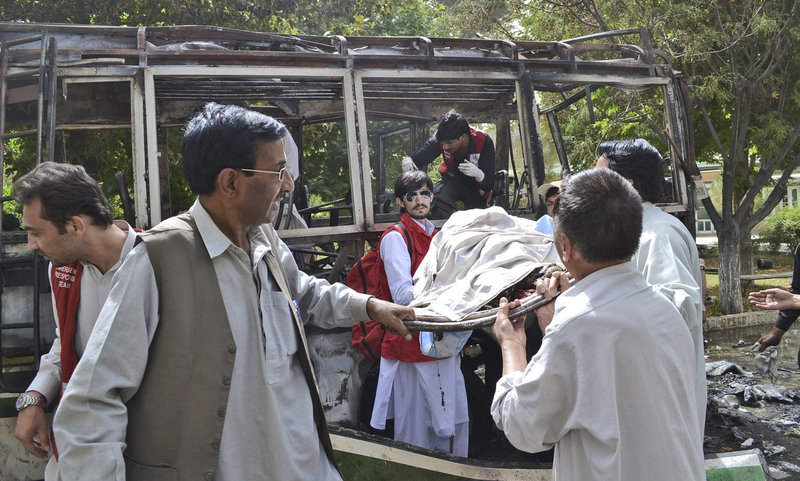Pakistani forces stormed a hospital that had been taken over by gunmen Saturday in a restive southwestern province, freeing hostages and ending a five-hour standoff that capped a series of attacks that killed 22 people.
The violence emphasized the challenges that new Prime Minister Nawaz Sharif will have in bringing calm to Baluchistan, a region beset by a separatist movement, Taliban militants and violent sectarian groups. Police said six attackers were also killed in the fighting.
The Baluch have long been alienated by what they see as exploitation by the central government of the oil, natural gas and valuable minerals in the extremely poor and underdeveloped province. The area has also been plagued by horrific attacks by Islamic militants on minority Shiite Muslims, and Afghan Taliban fighters use the territory’s empty, arid landscape as a refuge.
The deadliest attack Saturday took place in the provincial capital of Quetta and appeared to target minority Shiites. A blast ripped through a bus carrying female university students, killing at least 14 people, said the head of police operations, Fayaz Sumbal.
The victims and bodies were rushed to a nearby hospital. As relatives, rescuers and government officials crowded into the building, a suicide attacker detonated explosives in the corridor leading to the emergency room, Sumbal said.
Other attackers then began firing at the crowd, prompting dozens to hide inside the hospital while others fled into the parking lot.
Soldiers and police commandos rushed to the scene and penned the attackers off into a wing of the hospital, Sumbal said.
An Associated Press reporter nearby heard intermittent gunfire as troops took up positions around the building. As fighting continued into the evening, another loud explosion later determined to be one of the attackers blowing himself up shook the hospital. Inside, patients, visitors and staff hiding behind locked doors spoke of the firefight.
“Everybody is trying to take shelter – in the corners, behind the steel cupboards and tables,” Hidayatullah Khan, who had been visiting a niece wounded in the earlier bus bombing, told the AP by telephone.
A government official who had been visiting wounded in the hospital died in the blast, as did two nurses, said Sumbal.
Another four soldiers from the country’s Frontier Corps also died, said Interior Minister Chaudhry Nisar Ali Khan. But it was not clear whether they were killed in the explosion or in the ensuing operation to clear the building. He said at least 35 people trapped inside the building were freed.
Lashkar-e-Jhangvi, a group of radical Sunni Muslims, who revile Shiites as heretics, claimed responsibility for the attack on the school bus and the hospital. The group said one of their female suicide bombers blew up the bus because it was carrying Shiites, although officials said the bus was also carrying students from other religious and ethnic groups.
Earlier Saturday, militants destroyed a house once lived in by Pakistan’s founder, Muhammad Ali Jinnah, who led the country to independence in 1947. The attack has huge significance in a country where Jinnah is so revered he’s referred to as Quaid-e-Azam or the “great leader.”
Attackers on motorcycles planted bombs at the 19th-century residence in the mountain resort town of Ziarat, about 75 miles north of Quetta. Three of the bombs exploded and ignited a fire that destroyed the building, said senior police officer Asghar Ali Yousufzai.
The attackers also shot dead a police guard outside the residency, which had been turned into a museum.
“It’s a symbolic attack on the idea of Pakistan,” said Raza Rumi, director of the Islamabad-based Jinnah Institute.
Send questions/comments to the editors.



Success. Please wait for the page to reload. If the page does not reload within 5 seconds, please refresh the page.
Enter your email and password to access comments.
Hi, to comment on stories you must . This profile is in addition to your subscription and website login.
Already have a commenting profile? .
Invalid username/password.
Please check your email to confirm and complete your registration.
Only subscribers are eligible to post comments. Please subscribe or login first for digital access. Here’s why.
Use the form below to reset your password. When you've submitted your account email, we will send an email with a reset code.